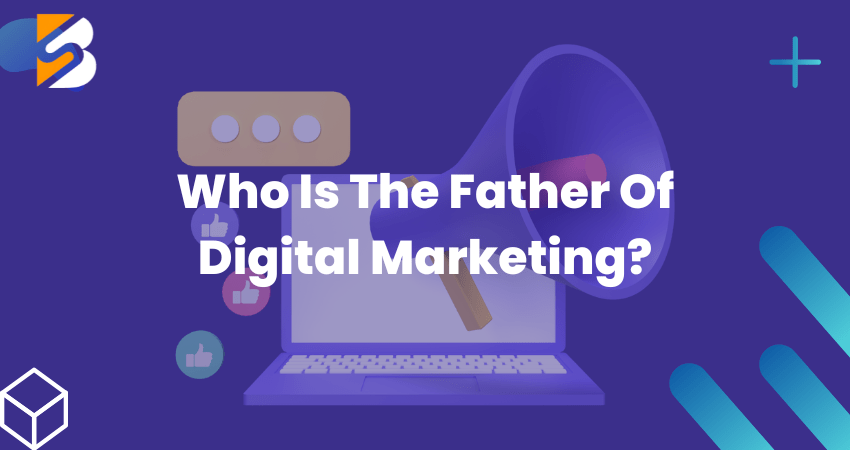Digital marketing has come a long way since its early days as an experimental medium for niche businesses. Today, it commands billions of dollars in annual spend and drives major parts of nearly every company’s sales engine. But who should get the credit for starting it all—the true father of digital marketing?
In this blog, we’ll explore the history of digital marketing and identify the person who is widely considered to be the father of digital marketing.
The History of Digital Marketing
The concept of digital marketing can be traced back to the early days of the internet, when companies began using email to reach out to potential customers. However, it wasn’t until the mid-1990s that digital marketing really began to take off. This was due in large part to the emergence of search engines like Yahoo! and Google, which made it easier for people to find information online.
As the internet became more popular, companies began to realize the potential of digital marketing. They began creating websites and using them to promote their products and services. In the early days, digital marketing was focused mainly on banner ads and pop-ups, but it quickly evolved to include search engine optimization (SEO), pay-per-click (PPC) advertising, social media marketing, and more.
The Father of Digital Marketing
There is no one person who can be considered the father of digital marketing, as this field has evolved over time through the contributions of many individuals and organizations. However, it’s fair to say that several key figures have played a significant role in shaping the development of digital marketing as we know it today.
One of the earliest pioneers of digital marketing was David Ogilvy, who is widely regarded as the father of advertising. In addition to his groundbreaking work with traditional media channels, Ogilvy also embraced new technologies such as television and direct mail at an early stage, recognizing their potential to reach audiences more effectively.
More recently, the rise of online shopping has had a profound impact on digital marketing, leading to the emergence of specialized fields such as ecommerce marketing and search engine optimization (SEO). Leaders in these areas include experts like Rand Fishkin, whose company Moz provides valuable resources and insights for businesses looking to improve their visibility in search results, and Neil Patel, who shares practical tips and strategies for growing online stores through content marketing and other tactics.
While digital marketing has many pioneers, the person who is widely considered to be the father of digital marketing is Philip Kotler. he is best known for his contributions to the study and practice of marketing, including his pioneering work on the concept of the 4Ps of marketing (product, price, promotion, and place). Philip Kotler has authored numerous seminal works on marketing strategy and management, including the classic textbook “Marketing Management.”
Kotler’s framework for analyzing marketing opportunities, which he calls the “4 Ps” (Product, Price, Promotion, and Place), remains widely used by marketers around the world to develop effective campaigns and position products or services in competitive markets. His emphasis on understanding consumer behavior and preferences has particular relevance for digital marketers, who must grapple with complex data sets and constantly adapt their strategies to keep up with changing audience dynamics.
Like some of the other figures mentioned earlier, Kotler has been ahead of the curve in embracing new technologies and trends in the marketing industry. For example, he has written about the importance of building strong relationships with customers through personalization and customization, long before these became standard practices in digital marketing. He has also highlighted the need for companies to adopt sustainable and socially responsible policies to maintain credibility and trust with consumers in the age of transparency and social media.
Overall, while Philip Kotler may not be directly associated with the origins of digital marketing, his broader contributions to the field of marketing provide valuable guidance and insight for practitioners seeking to navigate the rapidly evolving landscape of online communication and commerce.
Conclusion
In conclusion, identifying a single “father” or central figure responsible for birthing the digital marketing industry may be difficult given its complex origins and dynamic evolution over the past few decades. However, without discounting other notable contributors such as entrepreneurs like Jeff Bezos and Mark Zuckerberg, the co-creation of Google (now Alphabet), development of HTML/HTTP protocols, and establishment of foundational marketing concepts serve as crucial stepping stones in shaping the discipline today. Whether directly or indirectly, these figures have significantly influenced the shape and direction of modern digital marketing through advancements in search engines, website design, social media platforms, email marketing, data analytics tools, and much more.



